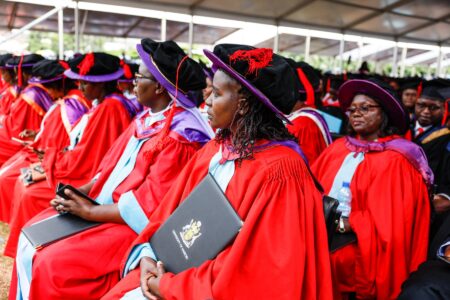
- Show search form Hide search form
- Quick links
- Staff search
- Search Search --> Websites Staff search Start search

Salary schemes for University Staff according to the Collective Bargaining Agreement
Academic university staff.
According to the job group scheme for academic staff (referred to as ‘staff members in science / art’ in the Collective Bargaining Agreement), academic staff members are allocated to the job groups A1, A2, B1, B2 and C. The data refers in principle to an employment 40 hours per week (gross salary).
- Job group A 1 – university professors appointed on the basis of an appointment procedure (section 98 and section 99 of the 2002 Universities Act)
- Job group A 2 – academic staff with whom a qualification agreement was concluded
- Job group B 1 – university assistants (referred to as ‘assistant professors’ in the Collective Bargaining Agreement), senior scientists, senior lecturers and project staff who have completed a master’s or diploma programme
- Job group B 2 – lecturers
- Job group C – student staff and project staff who have not completed a master’s or diploma programme
University professors appointed on the basis of an appointment procedure (section 98 and section 99 of the 2002 Universities Act) Article 49
(1) The gross monthly salary of the A1 salary group amounts to EUR 6,362.50
Subject to at least one positive evaluation of work (as defined in the UG 2002) during the relevant period this amount shall increase
- to EUR 6,966.60 after six years of service,
- to EUR 7,564.90 after twelve years of service,
- to EUR 8,163.20 after eighteen years of service, and
- to EUR 8,761.70 after twenty-four years of service.
From 01 February 2025:
(1) The gross monthly salary of the A1 salary group amounts to EUR 6,604.30.
- to EUR 7,231.30 after six years of service,
- to EUR 7,852.40 after twelve years of service,
- to EUR 8,473.40 after eighteen years of service, and
- to EUR 9,094.60 after twenty-four years of service.
Academic staff with whom a qualification agreement was concluded Article 49
The gross monthly salary of the A2 salary group amounts to EUR 4,829.20 and in the case of staff members holding a doctor's degree or Ph.D. in the relevant subject it amounts to EUR 5,595.60.
These amounts shall increase
(a) to EUR 6,055.70 after fulfilment of the qualification agreement (Article 27), (b) and in the case of at least one positive evaluation of work (as defined in the UG) during the relevant period
- to EUR 6,667.50 after six years of service as Associate Professor,
- to EUR 7,265.90 after twelve years of service,
- to EUR 7,864.30 after eighteen years of service, and
- to EUR 8,462.30 after twenty-four years of service.
The gross monthly salary of the A2 salary group amounts to EUR 5,012.70 and in the case of staff members holding a doctor's degree or Ph.D. in the relevant subject it amounts to EUR 5,808.20.
(a) to EUR 6,285.80 after fulfilment of the qualification agreement (Article 27),
(b) and in the case of at least one positive evaluation of work (as defined in the UG) during the relevant period
- to EUR 6,920.90 after six years of service as Associate Professor,
- to EUR 7,542.00 after twelve years of service,
- to EUR 8,163.10 after eighteen years of service, and
- to EUR 8,783.90 after twenty-four years of service.
University assistants, senior scientists, senior lecturers and project staff after having completed a master’s or diploma programme Article 49
(3) The gross monthly salary of the B1 salary group amounts to EUR 3,578.80.
This amount shall increase
(a) to EUR 4,242.60 after three years of service. The three-year period shall be reduced by periods for which previous job-related work experience can be proved;
(b) after eight years of service in a position as defined in letter (a) or in the case of a doctor's degree which was a prerequisite for conclusion of the employment contract (postdoc position), to EUR 4,752.30;
(c) after eight years of service in a position as defined in letter (b) to EUR 5,251.10;
(d) after eight years of service in a position as defined in letter (c) to EUR 5,519.40.
From 01 February 2025
(3) The gross monthly salary of the B1 salary group amounts to EUR 3,714.80.
(a) to EUR 4,403.80 after three years of service. The three-year period shall be reduced by periods for which previous job-related work experience can be proved;
(b) after eight years of service in a position as defined in letter (a) or in the case of a doctor's degree which was a prerequisite for conclusion of the employment contract (postdoc position), to EUR 4,932.90;
(c) after eight years of service in a position as defined in letter (b) to EUR 5,450.60;
(d) after eight years of service in a position as defined in letter (c) to EUR 5,969.60;
(e) after eight years of service in a position as defined in letter (d) to EUR 6,488.60.
Lecturers Article 49, para. 4 The gross monthly salary of the B 2 salary group per instruction unit of academic teaching amounts to EUR 275.57
- EUR 326.68 after 3 years of service (B 2 lit. a)
- EUR 365.93 after 8 years of service (B 2 lit. b)
The existing categories of courses continue to apply until a new collective agreement is concluded.
Student staff and project staff without a master’s or diploma degree Article 49, para. 5 The gross monthly salary of the C salary group amounts to a maximum of EUR 1,299.60. In the case of a normal weekly working time of less than 20 hours the salary shall be prorated.
01.02.2025:
- Collective Bargaining Agreement for University Staff - Änderungen im Kollektivvertrag für die Arbeitnehmer*innen der Universitäten: "19. Nachtrag vom 04. Dezember 2024" (in German)
- Sideletter Collective Bargaining Agreement for University Staff - Sideletter zum Kollektivvertrag für die ArbeitnehmerInnen der Universitäten (in German)
- Collective Bargaining Agreement for University Staff - Änderungen im Kollektivvertrag für die Arbeitnehmer*innen der Universitäten: "17. Nachtrag vom 21. Dezember 2023" (in German)
General university staff
According to the Collective Bargaining Agreement for University Staff, all staff members are allocated to job groups I to V depending on fulfilment of classification criteria. Every job group comprises two qualification levels, to which the staff members are allocated: the basic level and the regular level. The basic level applies to
- staff members who are employed in the relevant occupation for the first time (in particular high school or university graduates),
- staff members with no previous job-specific experience, or
- staff members who have been reallocated from lower job groups.
The regular level applies to staff members after three years at the basic level of the same job group. An advancement to regular level is possible earlier than after three years
- if proof of previous job-specific experience is provided, or
- if the staff member has been reallocated from a lower job group and would have to be allocated to the basic level of the higher job group as laid down in article 53, para. 2 and already possesses the required knowledge and experience, or
- if s/he has successfully completed subject-specific internal and external measures of continuing education and training to improve or expand his/her skills.
According to article 56, para. 1 of the Collective Bargaining Agreement of 1 February 2022, the monthly apprentice pay for apprentices as defined in the Austrian Act on Vocational Training [Berufsausbildungsgesetz/BAG] amounts from Feb. 1st 2024 to
EUR 942.60 in the 1st year
EUR 1,140.80 in the 2nd year
EUR 1,367.40 in the 3rd year
EUR 1,706.80 in the 4th year of apprenticeship.
According to article 56, para. 1 of the Collective Bargaining Agreement of 1 February 2022, the monthly apprentice pay for apprentices as defined in the Austrian Act on Vocational Training [Berufsausbildungsgesetz/BAG] amounts from Feb. 1st 2025 to
EUR 1,042.60 in the 1st year
EUR 1,240.80 in the 2nd year
EUR 1,467.40 in the 3rd year
EUR 1,806.80 in the 4th year of apprenticeship.
- Collective Bargaining Agreement for University Staff (PDF, issued 2022)
Please note that the most recent salaries' values are to be found above, in the additional documents.
- job offers for scientists and academics
- ☕ employers: post a job offer
- other job markets
- phd in austria
- postdoc in austria
- professorship in switzerland
- wire - kurze nachrichten
- search an event related to science and research
- announce an event on events.myScience
- scientific information
- administration
- industrial research
- medical research
- research institutions
- universities
- universities of applied sciences
- working conditions in Austria
- salary of researchers in austria
- tax system in austria

phd salaries in austria
Based on a full-time position, doctoral students in austria receive a gross annual salary of 3,277.30 euros. it should be noted that an employment relationship often has a job scope of only 30 hours per week or less..
- The pay scale structure for the salary of scientists is transparently regulated in Austria. If a doctoral student is a scientific employee at a state university, his or her salary is automatically regulated by the collective agreement for scientific university staff.
- In the salary scheme of the collective agreement for scientific university staff, the subdivision is made into different salary groups - A1, A2, B1, B2 and C. Doctoral students are located in the B1 salary group. Here, the gross monthly salary is 3,277.30 euros . The figures refer to an employment 40 hours / week. after three years of employment, the salary rises to 3,885.20 euros.
- Not every doctoral student, however, is automatically also employed as a research assistant at a university. Many PhD students have to take care of the financing of their doctorate themselves. On the page of the University of Vienna you will find important information about funding programs. Since funding opportunities are limited, many doctoral students finance their dissertations through outside university employment.
Source: Collective Agreement for Academic University Staff
Jobmail & Alerts
Last job offers
Search for job
- » Recruit new employees on jobs.myScience

- Show search form Hide search form
- Quick links
- Staff search
- Search Search --> Websites Staff search Start search
Payment of salary and compensation for examinations
Monthly salary
The contractually fixed gross annual salary is paid in 16 instalments (12 monthly payments plus four half special payments).
The monthly salary is paid on the 15th of each month for the current calendar month; both special payments are made in two parts, so half a special payment is made on 15 March, 15 June, 15 September and 15 November.
If the 15th is not a working day, the payment is made on the previous working day.
Payment for examinations: compensation for examinations and payment for the review of academic papers
The information on examinations conducted and the review of academic papers is collected by the relevant StudienServiceCenter (SSC); the designated payments for these services are paid retrospectively twice a year.

- Show search form Hide search form
- Quick links
- Staff search
- Search Search --> Websites Staff search Start search
Open positions at the University of Vienna
The University of Vienna offers both predefined PhD projects (within the framework of externally funded projects) and the possibility to apply for a PhD position either at the faculty or at one of the Doctoral Schools with your own PhD project. The requirements and deadlines for open PhD positions can be found on the individual websites of the Doctoral Schools as well as at the Job Centre of the University of Vienna. As there are different ways to get funding for your PhD project, we recommend that you to check the different channels for vacancies listed below.
Vienna Doctoral School of Ecology and Evolution
Vienna Doctoral School of Pharmaceutical, Nutritional and Sport Sciences
Vienna BioCenter PhD Program, joint doctoral school of the University of Vienna and the Medical University of Vienna
- Vienna Doctoral School in Cognition, Behavior, and Neuroscience - from Biology to Psychology and the Humanities (CoBeNe)
- Doctoral School Microbiology and Environmental Science
Vienna Doctoral School in Physics
Vienna Doctoral School in Chemistry
Vienna International School in Earth and Space Sciences
Vienna School of Mathematics | Joint Doctoral School mit der TU Wien
UniVie Doctoral School Computer Science
Vienna Doctoral School of Social Sciences
Vienna Graduate School of Economics
Vienna Graduate School of Finance (VGSF)
Vienna Doctoral School of Historical and Cultural Studies
Vienna Doctoral School of Philosophy
Vienna Doctoral School of Theology and Research on Religion
Advanced Research School in Law and Jurisprudence
For University funded prae doc positions check additionally the vacancies in the Job Center
For external funding we recommend to check
- Doctoral fellowship programme of the Austrian Academy of Science
- Further useful database: grants.at/en

- Show search form Hide search form
- Quick links
- Staff search
- Search Search --> Websites Staff search Start search
Application Guidelines
The Doctoral School in Microbiology and Environmental Science of the University of Vienna offers PhD positions in diverse research areas ranging from molecular microbiology, ecology, and computational biology to environmental geosciences. Our focus is to provide young scientists with a stimulating environment that promotes the development and advancement of essential skills for a prosperous academic career.
Would you like to:
- Join a dynamic and international research environment?
- Have access to unique high-level infrastructure and instrumentation?
- Receive interdisciplinary training at the interface of microbiology, ecology, and environmental geosciences from internationally well recognized scientists?
- Benefit from career coaching and early international networking?
- Live in Vienna, a city that is continuously ranked among the top cities in the world for quality of life?
Regardless whether you are interested in studying molecular and biochemical mechanisms, single cells, microbial communities or ecosystems and biochemical processes, our faculty provides the ideal framework for your PhD project with the combined expertise of 18 researchers at the assistant, associate and full professor level.
Admission Procedure
The admission procedure includes:
- evaluation of the written application by scholarly and scientific criteria by a panel of faculty members
- initial online interviews between selected applicants and faculty members (match-making step)
- invitation of selected applicants for online panel interviews, including two 15-minute (chalk-talk) presentations by applicants on their master’s thesis and a scientific paper selected by the faculty panel, respectively.
We are aiming to complete the recruitment process until July 2023 at the latest.
For any further questions about the application procedure, please contact vds-mes.cmess @ univie.ac.at .
Research projects of successful applicants are funded for a period of up to four years, according to the Austrian Science Fund standard salary for PhD students (€ 2,464.80 gross salary per month in 2023).
5 countries offering the highest PhD stipends

Did you know that as a PhD student, there is a difference between salary and PhD stipends?
This is just one of the many things you should know when deciding to do a PhD .
As the highest level of education, a Doctor of Philosophy or PhD can take anywhere from four to 12 years to complete .
Embarking on a journey towards a PhD is an intellectually rewarding pursuit, but it often comes with financial challenges.
So, how do students cope?
If you receive a salary, you are likely an employee the school hired to carry out a job like leading a class.
Like most jobs, salaried workers get a set wage based on their hours and often have employee benefits like subsidised healthcare or compensation.
A PhD stipend is a financial support system for doctoral students to cover living expenses, tuition, and research costs during their academic journey.
There are three types of PhD stipends :
- Graduate Teaching Assistantships (GTAs): For this, you are required to assist by delivering one or more courses over a number of years. You would also need to take on other responsibilities, such as marking student tutorials, supervising lab experiments, and providing support to undergraduates during office hours.
- Research Assistantships (RAs): In this role, you will assist a departmental professor with their research. If you are lucky, the professor will be your PhD supervisor, and their research (and the support you give) will relate to your own doctoral project.
- Stipend via Studentship: This is a non-repayable grant for doctoral students. Unlike the other two stipends, this one rarely has additional suits, but you must progress with your degree.
Have PhD stipends always been like this?
PhD stipends have a rich history that mirrors the evolution of higher education.
Our current understanding of a PhD originated in 19th-century Germany , but doctoral degrees were awarded long before this.
Over time, PhD stipends have evolved into a cornerstone of doctoral education, ensuring that financial constraints do not hinder the pursuit of advanced knowledge.
Fun fact: The term “stipend” itself has Latin origins, coming from “stipendium,” which refers to a soldier’s pay.
This etymology underscores the idea that stipends are a form of financial support for individuals committed to advancing knowledge, akin to soldiers committed to a cause.
Sometimes, these PhD stipends are not enough.
In January 2023, The Guardian reported about how PhD students in Australia were barely earning enough to survive.
“Through Melbourne’s winter, I know people forced into less than suitable housing who weren’t turning on their heat,” said Tara-Lyn Camilleri, who lobbied to raise the stipend at Monash University from 30,000 AUD to A$37,000 while completing her PhD last year.
It was eventually raised to A$33,000, about A$4,500 less than the minimum wage after tax.
As PhDs can take years to complete, it is always easier to do one when you have money saved away instead of relying entirely on the PhD stipend.

Eric Schmidt, former CEO and Chairman of Google, has a PhD in electrical engineering.
Forbes even released a list of the most popular PhDs among billionaires :
- Former CEO of Google. Eric Schmidt (estimated net worth: US$16.2 billion), UC Berkeley
- The man behind Garmin GPS, Min Kao (US$4.2 billion), University of Tennessee
- Co-Founder, Chief Technology Officer and Chairman of Broadcom, Henry Samueli (US$7.7 billion), UCLA
- Founder of D. E. Shaw & Co., L.P., David Shaw (US$7.9 billion), Stanford University
- Co-Founder & Co-Chairman of Two Sigma, David Siegel (US$6.8 billion), Massachusetts Institute of Technology
- The man behind some of Microsoft’s most successful software, including Word and Excel, Charles Simonyi (US$5.2 billion), Stanford University
And while having these PhDs doesn’t necessarily mean you’re on your way to the list of richest people in the world, it definitely makes you more knowledgeable than most. Having a PhD stipend will simply make this journey to the top easier.
In fact, some universities around the world have increased their stipends recently to attract more talent.
- The Canadian government has pledged 825 million CAD (approximately US$603 million) to support next-generation researchers by increasing both the number and value of stipends over the next five years. This would increase annual PhD stipends from 24,000 CAD to 40,000 CAD.
- Vanderbilt University, one of the most expensive universities in the world , will increase its PhD stipends to a range of US$34,000 to US$38,000 beginning in the 2024-25 academic year.
- De La Salle University is offering full tuition and fees with monthly stipends of 35,000 PHP (approximately US$600) for full-time students in any PhD academic programme through the Saint Miguel Febres Cordero PhD Scholarship Programme.
Now, if you’re a promising PhD student hoping to secure your stipend, try checking out these countries with some of the best offers:

The University of Vienna is a public research university located in Austria. Source: University of Vienna
Top 5 countries with the highest PhD stipends
- Average PhD stipend: US$104,328
- Average cost of living: US$1,705.67
Boasting over 50 institutions of higher education, it is no surprise that Austria is a top choice for a PhD.
Its rich cultural and academic heritage offers competitive stipends, with institutions like the University of Vienna leading the way.
This is because of the country’s commitment to academic excellence and research.
Universities often collaborate with international partners, contributing to a vibrant research community.
Government funding and a focus on supporting doctoral research contribute to the attractiveness of stipends in Austria.
Here are some of the best universities in Austria:
- University of Vienna
- Vienna University of Technology
- University of Innsbruck
- Medical University of Graz
- Salzburg University
View this post on Instagram A post shared by UvA: University of Amsterdam (@uva_amsterdam)
Netherlands
- Average PhD stipend: US$74,163
- Cost of living: US$861.45 to US$1292.17
The Netherlands, known for its innovation and research-driven culture, offers competitive stipends, with institutions like Delft University of Technology providing substantial financial support.
About 10 Dutch research universities are ranked in the top 200 of the Times Higher Education World University Rankings 2022.
The Netherlands is also highly ranked internationally for the number of publications per researcher (second) and for the impact of research publication (fourth).
“The PhD salary in the Netherlands is one of the best in the world,” a former PhD says to Dutch News .
“In the UK, the salaries are just 1,000 pounds and PhD students need to work at weekends. I was able to buy a house while being a PhD student here.”
Here are some of the top universities in the Netherlands :
- University of Amsterdam
- Leiden University
- University of Groningen
- Delft University of Technology (TU Delft)
- Erasmus University Rotterdam

The University of Helsinki has one of the highest PhD stipends. Source: University of Helsinki
- Average PhD stipend: US$46,537
- Cost of living: US$646.09 to US$969.13
Renowned for its high-quality education system, Finland offers competitive stipends, with institutions like the University of Helsinki providing substantial financial support.
Government funding often supports stipends in Finland, reflecting the country’s commitment to nurturing the next generation of researchers.
Students are also encouraged to take ownership of the research in Finland.
Here are the top universities in Finland :
- University of Helsinki
- Aalto University
- University of Oulu
- Tampere University
- University of Turku

Universities in Denmark often offer industrial PhDs. Source: University of Copenhagen
- Average PhD stipend: US$53,436
- Average cost of living: US$11,45.62
Denmark strongly emphasises education and research, and the country’s social welfare system ensures that stipends are sufficient to cover living expenses.
The country also offers an Industrial PhD option if you want to conduct a research project with commercial perspectives.
Denmark is also popular for the balance of robust academics and a great living standard, giving international students the best of both worlds.
Here are the best universities in Denmark:
- University of Copenhagen
- Technical University of Denmark
- Aarhus University
- University of Southern Denmark (SDU)
- Aalborg University
- Average PhD stipend: US$42,618
- Average cost of living: US$2,512.13
The land of innovation and Vikings beckons ambitious scholars with competitive stipends and one institution that stands out is the renowned Karolinska Institute.
Sweden’s commitment to pioneering research and its unique blend of modernity and tradition make it an alluring destination for those pursuing a PhD.
Most universities in Sweden offer salaries instead of stipends.
Here are some of the leading institutions in Sweden :
- Blekinge Institute of Technology
- Chalmers University of Technology
- Dalarna University
- Halmstad University
- Jönköping University
*All figures were converted as of the time of writing on December 7, 2023.
Disclaimer: This article was last updated on May 23, 2024.
Popular stories
Purdue university: future-proof your career in industrial engineering.


A short guide to what two-year degrees are all about

Diploma courses in Australia: The best, the easiest, and the cheapest

How this Chevening graduate is leading mental health advocacy in Indonesia

10 PhD scholarships in Canada for international students

6 countries that offer free or very cheap PhD programmes

Why pursuing a PhD in New Zealand is so attractive

Salary in Austria
The Austrian wage scheme includes 12 monthly salary payments and 2 special payments (also known as the “13th and 14th salaries”). Special payments are paid on a quarterly basis and are taxed at a lower rate.
Income taxes, social insurance, contributions, and other deductions are deducted from your gross pay and withheld by the employer, who then transfers them to the respective institutions. Your net salary as it is paid out to you is then yours to spend on your personal living expenses (food, rent, entertainment, etc.). If you wish to calculate your net salary, click here (German) or here (English).
For more information on the cost of living in Vienna, please see the information for prospective students provided by WU Vienna .
PHD Program
- Deadlines and Selection Process
- Requirements
- Supporting Material
- Life in Vienna
- PhD in Finance Brochure ( pdf , 1.38 MB )
This website uses cookies for analytical purposes for optimizing our systems and to improve your user experience. More information . By clicking on "Close" or continuing to browse the site, you are agreeing to the use of cookies.

Master, PhD and Postdoc Scholarships

Salary of PhD and Postdoc in Austria
If you’re curious about the salaries of PhD students and Postdocs in Austria, you’ve come to the right place. This post provides all the essential information you need. Austria, a prominent German-speaking country, is home to numerous esteemed research institutions and universities. In this post, we delve into the specifics of PhD and Postdoctoral salaries in Austria, covering both before-tax and after-tax earnings.
Increasing PhD Stipend 2023-2024 in UK
Before-tax Salary of PhD and Postdocs in Austria
PhD students working under contracts at Austrian universities, like any other employees, are subject to taxation. The monthly gross salary for a PhD student in Austria typically ranges from 2,151€ to 2,615€ (paid 14 times a year). However, the salary of a Postdoc in Austria hinges on the funding source of the project. For example, if a Postdoc receives funding from FWF, the monthly Postdoc salary before tax can amount to 3,711€.
After-tax Salary of PhD and Postdocs in Austria
Let’s shift our focus to the after-tax salary of PhD students and Postdocs in Austria. For PhD students, the monthly net salary typically falls within the range of 1,563€ to 1,809€. This translates to a take-home income of 2,362€.
In the case of an experienced Postdoc, often referred to as a “senior Postdoc,” the monthly gross salary is higher and can reach up to 4,080€. Correspondingly, the net salary for a senior Postdoc in Austria would be around 2,537€ per month.
The salary structure for PhD students and Postdocs in Austria (those on fixed-term contracts) varies based on qualifications and job performance. There are some parallels to the salary structures in Denmark , Germany , Switzerland , Sweden , Netherlands , Norway , Ireland , France , Netherlands and the UK . However, it’s important to note that these salaries typically fall below those received by PhD students in ITN (Innovative Training Network) positions or Postdocs hired through the Marie-Curie Postdoctoral Fellowship .
Available Fully Funded PhD and Postdoc Positions in Austria
Explore opportunities in Austria with our dedicated sections for Fully Funded PhD and Postdoc positions:
- Available Fully Funded PhD Positions in Austria
- Available Postdoc Positions in Austria
Interested in discovering the salary figures for PhD and postdoctoral positions in Europe?:
- PhD Salary in Denmark
- Postdoc Salary in Denmark
- Salary of a PhD student and Postdoc in Norway
- PhD Salary in Switzerland
- Salary ladder for PhD students in Sweden
- Salary of PhD student and Postdoc in Germany
- Salary of PhD and Postdoc in Ireland
- Salary of Postdocs in France
- Salary of PhD student and Postdoc in the UK
- Professors’ salary in the UK
- Salary of PhD student and Postdoc in the Netherlands
- Salary of PhD student and Postdoc in Finland
- Salary of PhD student and Postdoc in Austria
- Salary of Marie-curie postdoctoral fellowship
- Salary of PhD student in Marie-Curie ITN
- Doctorate Degree Business Administration Salary
Fully Funded PhD Positions with Salary
- Germany – Fully Funded PhD
- Switzerland – Fully Funded PhD
- Denmark – Fully Funded PhD
- UK – Fully Funded PhD
- Sweden – Fully Funded PhD
- Finland – Fully Funded PhD
- Netherlands – Fully Funded PhD
- Norway – Fully Funded PhD
- Belgium – Fully Funded PhD
- Austria – Fully Funded PhD
- Australia – Fully Funded PhD
- France – Fully Funded PhD
- New Zealand – Fully Funded PhD
- Canada – Fully Funded PhD
- USA – Fully Funded PhD
- Luxembourg – Fully Funded PhD
- Spain – Fully Funded PhD
- Italy – Fully Funded PhD
- Iceland -Fully Funded PhD
Stay up-to-date with the latest academic positions by regularly visiting our Home Page and Academic Jobs page . To be among the first to learn about new vacancies, follow us on Facebook . If you prefer visual content, don’t miss our YouTube channel, where you can access informative PhD and Postdoc-related videos.
- PhD degree in Austria
- PhD in Austria
- PhD in Belgium
- PhD in Canada
- PhD degree in Denmark
- PhD in Finland
- PhD Programs in France
- How to apply for a PhD in Germany?
- PhD in Iceland
- PhD in Italy
- PhD in Luxembourg
- PhD in Netherlands
- PhD in New Zealand
- PhD in Norway
- PhD in Spain
- PhD in Sweden
- PhD Degree in Switzerland
- How to apply for PhD in UK?
- EU Funded Positions in Australia
- EU Funded Positions in France
- EU Funded Positions in Germany
- EU Funded Positions in Luxembourg
- EU Funded Positions in Spain
- EU Funded Positions in UK
- PhD in Biology
- PhD in Business and Finance
- PhD in Computer Sciences
- PhD in Education
- PhD in Engineering
- PhD in Law and Social Sciences
- PhD in Health and Medicine
- PhD in Psychology
- PhD in Sciences
- Undergraduate and Postgraduate Scholarships at Deakin University
- PhD Scholarship and Postdocs at Australian National University
- 600 Scholarships at University of Melbourne
- Scholarships at the Center for Quantum Technologies
- International fellowship of Cancer Research Institute
- Fully Funded Joint PhD and Academic Jobs at University of Melbourne
- Scholarships in Canada
- Scholarships in Iceland
- Renault Foundation Scholarships
- DAAD Research for University Academics
- DAAD Architecture Scholarship
- Graduate Music Scholarships (DAAD)
- DAAD Art Scholarship
- DAAD Bilateral Exchange of Academics
- DAAD scholarship Development-Related (EPOS)
- DAAD scholarship for Iranian students
- DAAD University Summer Courses
- DAAD Working Internships in Science and Engineering (WISE)
- How to write a good Marie Curie project proposal?
- Chevening Scholarship (UK)
- Rhodes Scholarships For international students
- University of Manchester Scholarships
- Scholarships and Academic Jobs at University of Birmingham
- Google Scholarships
- Newton Fellowship
- Scholarships at British Private Post University (BPP Scholarships)
- Undergraduate Scholarships at Trinity College Dublin in Ireland
- Postgraduate Scholarships at Trinity College Dublin
- Scholarships and Postdoc Jobs at Boston University (BU)
- Institute for Advanced Study Funding and Fellowships
- Scholarship Universe Purdue
- Scholarships at Our Lady of the Lake University
- Scholarships and Awards at Bellarmine University
- Google Scholarship, Internships and Fellowships
- Scholarships for international students at Lincoln University
- Scholarships at Rider University in USA
- James S. McDonnell Foundation Fundings in the USA
- Coca Cola Scholarship
- PEO International Scholarships, Grant and Loan
- Scholarships at University of Texas at Arlington (UTA Education)
- Scholarships for South Asian Citizens
- Udacity Scholarships
- Student Loan
- How to find a Postdoc Position?
- Postdocs in Austria
- Postdocs in Belgium
- Postdocs in Canada
- Postdocs in Denmark
- Postdocs in Finland
- Postdocs in France
- Open Postdoc Position at the RWTH Aachen University Hospital (Aachen, Germany)
- Postdocs in Italy
- Postdocs in Luxembourg
- Postdocs in Netherland
- Postdocs in New Zealand
- Postdocs in Norway
- Postdocs in Spain
- Postdocs in Sweden
- Postdocs in Switzerland
- Postdocs in the UK
- Postdocs in the USA
- Comparison of Salary of PhD Students in Europe
- Comparison of Salary of Postdoc in Europe
- Salary of PhD and Postdocs in Austria
- PhD and Postdoc Salary in Luxembourg
- Salary of PhD and Postdocs in Finland
- Salary of PhD and Postdocs in France
- Salary of PhD and Postdocs in Germany
- Salary of PhD and Postdocs in Ireland
- Salary of PhD students in Marie-Curie ITN
- Salary of Marie Curie Postdoctoral Fellowship
- Top 20 countries with the highest salary of Marie-Curie Fellowship
- Salary of PhD and Postdocs in the Netherlands
- PhD and Postdoc Salary in Norway
- Salary of PhD students in Switzerland
- PhD Salary in UK
- Comparing Postdoc Salaries in the UK
- Academic Email: How to email a Professor for inquiry?
- Application Letter (also known as cover letter)
- Six essential steps to get your article published
- How to write a strong Application Letter?
- How to prepare an eye-catching CV for academics?
- How to write a good project proposal?
- Cover Letter Preparing Service
- Interview Questions of Academic Position
- IELTS Listening Test
- IELTS Reading Test
- How much does it cost to live in Switzerland as a student?
- How much does a university cost in Switzerland?
- How much does it cost to study in Sweden?
- How much does it cost to live in Sweden as a student?
- How to apply for a master’s degree in Canada?
- How much does it cost to study in Austria?
- How much are the tuition fees in Denmark?
- How much does it cost to live in Germany?
- Bachelor in the UK
- Master’s Degree (MS) in the USA
- Best Master of Public Health (MPH) Programs
- Master degree in Austria
- Master Programs in the UK
- Master’s degree in Denmark
- How can you study MSc/PhD in Germany without Funding?
- How much does it cost to study in Germany?
- Best city to study in Germany
- PhD Degree Requirements
- Top Online MSW Programs
- Online Colleges with Financial aid in different study subjects
- Business Free online courses
- Online MBA Scholarships
- Online MBA in the UK
- Online Master of Public Health (MPH) at Baylor University
- Baylor University Online Programs
- Purdue Health and Nursing Online Master Degrees
- Purdue University Online MBA
- Computer and Information Technology Purdue University (Online)
- Top 10 Online Nurse Practitioner Programs
- Fastest and Cheapest RN to BSN Online
- Online Doctorate in Nursing
- Online Criminal Justice Degree
- Harvard Business School Free Online Courses
- Computer Sciences free online Programs
- Free online Programs in Data and Engineering Science degree
- Online Medical and Health Free courses
- Education and teaching free online courses
- Online Doctoral programs in Higher Education Administration
- Online PhD Programs at Liberty University
- Top Online Program at West Coast University
- Online PhD Programs at Grand Canyon University
- Fastepo’s Golden Service
- Finding Position or Scholarship
- CV Preparing Service
- Advertise on Fasteo
- EDI Statement for Fastepo
- PhD salary and funding
- Studies & Further Education
- PhD & Doctoral Programs
- Our PhD Study (UN094)
Financing your Ph.D. study
The admission to the doctoral program does not imply that your Ph.D. studies are also fully funded because the resources of the project to which you are applying determine the amount of funds available for financing. Therefore, we encourage you to become well informed about your financing options before the start of your doctorate. However, our faculty do their absolute best to secure full funding for all their Ph.D. students.
If you sign your contract as a Ph.D. student with MedUni Vienna, you will be employed as a scientific employee and remunerated in accordance with the collective agreement for academic university staff (Level B1, equal to 30 hours per week). Projects funded by the FWF grant have their own funding regulations; please consult their website for more detailed information. Your supervisor can inform you about your contract and salary terms once you’ve reached a supervision agreement. To give you a better understanding of how much income you might need to live in Vienna, we recommend you to read OeAD's article on living costs.
Health insurance and pension
Due to your employment in Austria, you are automatically covered with health insurance and a pension. Austria has a good and safe health system to which you have full access with your e-card . There is also the option to co-insure your partner and children if necessary.
If you have no employment contract, it is your responsibility to ensure you are covered by health insurance.
For funding opportunities, scholarships or (state) support, you can obtain further information from the links below:
- Graduation scholarship for working students
- Grant for people with challenges
- Veronika-Fialka-Moser-Diversitäts-Preis
- General study grant
- Grants.at (Austria´s most comprehensive database on grants)
We use cookies
We use cookies that are technically necessary for the functionality of our website, but also cookies for functional, marketing and analysis purposes to optimise the user experience on our site. With your consent to the cookies, data is processed both by us and by third-party providers, some of which are based in third countries (e.g. the USA). You can find more information about the tools and the partners in our data protection declaration, in which we also explain exactly what data transfer to the USA can mean. You can individually adjust or revoke your cookie settings at any time if you wish.
These cookies are necessary for the basic functions of the website. You can block or delete them in your browser settings, but you then run the risk that some parts of the website will not function properly.
- PHPSESSID Technically necessary cookie from the web server. storage duration: session
- fe_typo_user_live Used by TYPO3 as function for user administration. storage duration: session
Necessary to obtain consent for certain cookies and thus for the use of certain tools.
- cookieUser Used to recognise the browser and its cookie history (consent or rejection of particular cookies with date und time) by an anonymised identification number. storage duration: 1 years
- fcc_cookie_consent Cookie Consent storage duration: 1 years
- fcc_cookie_consent_minified Cookie Consent storage duration: 1 years
- cookie_matomo Cookie Consent storage duration: 1 years
To track users on your website(s) or app(s), the default Matomo Tracking code in JavaScript uses 1st party cookies, which are set on the domain of your website.
- pk_ses short lived cookies used to temporarily store data for the visit storage duration: 30 minutes
- pk_id used to store a few details about the user such as the unique visitor ID storage duration: 13 months

IMAGES
COMMENTS
The gross monthly salary of the A2 salary group amounts to EUR 4,829.20 and in the case of staff members holding a doctor's degree or Ph.D. in the relevant subject it amounts to EUR 5,595.60. These amounts shall increase (a) to EUR 6,055.70 after fulfilment of the qualification agreement (Article 27),
In the salary scheme of the collective agreement for scientific university staff, the subdivision is made into different salary groups - A1, A2, B1, B2 and C. Doctoral students are located in the B1 salary group. Here, the gross monthly salary is 3,277.30 euros.
Monthly salary The contractually fixed gross annual salary is paid in 16 instalments (12 monthly payments plus four half special payments). The monthly salary is paid on the 15th of each month for the current calendar month; both special payments are made in two parts, so half a special payment is made on 15 March, 15 June, 15 September and 15 ...
The requirements and deadlines for open PhD positions can be found on the individual websites of the Doctoral Schools as well as at the Job Centre of the University of Vienna. As there are different ways to get funding for your PhD project, we recommend that you to check the different channels for vacancies listed below.
Research projects of successful applicants are funded for a period of up to four years, according to the Austrian Science Fund standard salary for PhD students (€ 2,464.80 gross salary per month in 2023).
May 23, 2024 · “The PhD salary in the Netherlands is one of the best in the world,” a former PhD says to Dutch News. “In the UK, the salaries are just 1,000 pounds and PhD students need to work at weekends. I was able to buy a house while being a PhD student here.” Here are some of the top universities in the Netherlands: University of Amsterdam
The Austrian wage scheme includes 12 monthly salary payments and 2 special payments (also known as the “13th and 14th salaries”). ... University of Vienna. WU ...
Before-tax Salary of PhD and Postdocs in Austria PhD students working under contracts at Austrian universities, like any other employees, are subject to taxation. The monthly gross salary for a PhD student in Austria typically ranges from 2,151€ to 2,615€ (paid 14 times a year).
If you sign your contract as a Ph.D. student with MedUni Vienna, you will be employed as a scientific employee and remunerated in accordance with the collective agreement for academic university staff (Level B1, equal to 30 hours per week).
The estimated total pay for a Phd Student is €2,567 per month in the Vienna Austria area, with an average salary of €2,200 per month. These numbers represent the median, which is the midpoint of the ranges from our proprietary Total Pay Estimate model and based on salaries collected from our users.